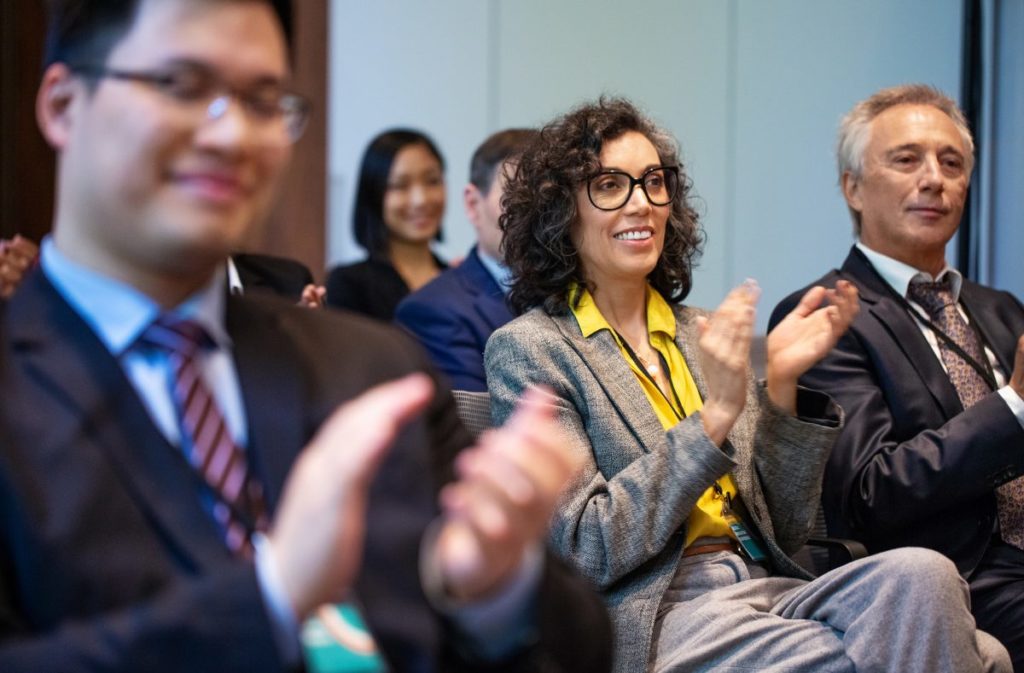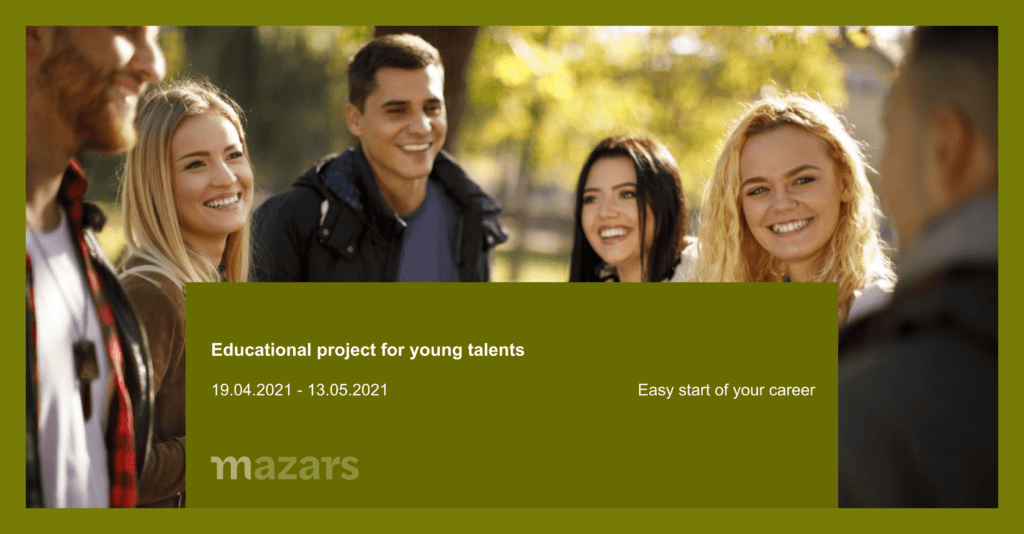A global school of excellence
Why stop learning once you have graduated?
27-07-2020 Three Questions to Laurent Choain, Chief People, Education & Culture Mazars Group.
Laurent, Mazars University was recently re-accredited CLIP, the leading independent accreditation system for corporate universities – what does this represent for Mazars?
EFMD is recognised globally as the accreditation body for management institutions, namely business schools, with EQUIS, and corporate universities, with CLIP. Clearly, receiving validation from peers who count among the most prominent players in the field of management education is a great accomplishment. But ultimately, this accreditation serves to confirm our core belief: education should be the backbone of any modern talent acquisition, management and development strategy.
Mazars, as all other Professional Service Firms, is talent intensive: we recruit young and smart people with a thirst for learning. Our key promise as an employer is employability. We know that most people do not stay with us forever and therefore, working at Mazars must above all be a qualifying experience. This is why we have chosen to focus our entire HR policy around education. The core activating principle being: “no career progression without education, and no education without career progression”.
To make this a reality, we are currently in the progress of co-designing certificates and badges with our long-term partner LinkedIn – making sure our people’s skills are recognised both inside and outside our firm. Since we have long believed in the power of ecosystems, we are also developing degrees with business schools, as we know that 21St century education will happen at the crossroad of academia and the corporate world.
How has the Covid-19 crisis affected your plans and strategy?
Mazars University’s fundamental mandate is to be the crucible of Mazars’ continuous cultural transformation. It has, since its creation in 2008, served as the epicentre of passing on knowledge, developing new skills, fostering innovation and nurturing a strong sense of belonging. Mazars University’s ultimate role is to make sure that Mazars stays relevant both today and tomorrow – a role which is all the more significant given the current context.
Covid-19 has actually accelerated existing, underlying trends: increasing attention to sustainability, the environment, society as a whole, flexibility, diversity & inclusion, innovation, technology, mobility, ethics, purpose… you name it. So, let’s not waste a good crisis, as Churchill reportedly never said.
This is why at Mazars we have the ambition to turn our offices into campuses: this crisis has revealed that we do not need to come to the office every day, but we do need to come to collaborate, learn for life not only get trained for a job, innovate and cultivate a sense of organisational belonging. This global pandemic has urged us all to rethink the workplace to become more modern, inclusive and sustainable. We also want our premises to be a place where our clients can come, learn and develop solutions with us.
What are your main priorities in the coming months?
Overall, to make Mazars – not solely Mazars University – a school of excellence, I have three big priorities on my radar:
- Executive leadership and engagement
Mazars University will be instrumental in empowering the next generation of leaders expected to succeed the current one in the four coming years. Stewardship is one of Mazars’ core values and the firm has already lived through four successful successions. Another one of my specific subjects today is executive engagement. Our partners cover a very wide field of management, which they must exercise in a modern way towards young and educated people. - Knowledge creation
Mazars is a brain-intensive organisation; its capability to leverage research that turns into thought leadership is real. Discerning clients, like the ones we serve, expect us to provide expertise on the most pressing topics. Mazars University has to continue to play its role in preparing and mobilising an always larger ecosystem to deliver on this promise and keep producing actionable knowledge. - Curation
In a world where large amounts of knowledge is readily available, channelling the right content to the right people will be a key differentiator. Developing experts in curation, namely this ability to identify and organise relevant content and share it as an articulated programme of professional development, will be one of the main focus areas of Mazars University.
In short, my mantra is: why stop learning once you have graduated? And this must be true for people at all hierarchical levels.
Learn more about Mazars University here.










